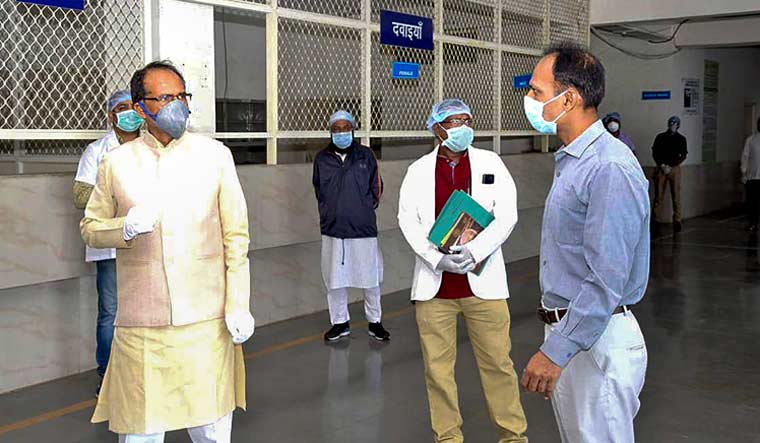Claiming that all the four deaths due to COVID-19 infection in Bhopal are those of gas tragedy survivors, organisations working for them have demanded immediate reopening of specialized treatment facilities at the state-of-the-art Bhopal Memorial Hospital and Research Centre (BMHRC).
The BMHRC, meant especially for treatment of Bhopal gas tragedy survivors was taken over by the Bhopal district administration and converted into a state level COVID-19 treatment centre on March 23. Consequently, all other treatment protocols including the OPD were closed down for all other diseases, thus making it out of bounds for the gas tragedy survivors who require specialised treatment that is not available at other government centres in the city, the survivors’ organisations have said.
Only three gas tragedy survivors on ventilator and one at cardiac care unit (CCU) were allowed to remain at the hospital while all others were almost forcibly discharged, leaving them vulnerable.
These patients are not getting proper treatment at any of the other facilities in the city and, as a consequence, at least eight of them, including four COVID-19 infected patients, have died after BMHRC closed down for them, Rachna Dhingra of Bhopal Group of Information and Action (BGIA), one of the major survivors’ organisations, has alleged. She also listed out the names and details of the eight deceased.
The BGIA and one of the women on ventilator at BMHRC—Munni Bee—have filed a petition at the Madhya Pradesh High Court seeking quashing of the orders of the Bhopal district collector to convert BMHRC into a COVID-19 hospital and allowing continued treatment of gas tragedy survivors there. In the petition, the alternative arrangements for COVID-19 centres have also been suggested.
Speaking to THE WEEK, Dhingra said that even before the BMHRC facility was taken away from the gas tragedy survivors, BGIA and other three survivors’ organisations had written to various authorities about the extra vulnerability of the survivors to the COVID-19 infection due to high rate of pulmonary, cardiovascular diseases, diabetes and cancer in them. The organisations had written to the Union health minister, the director general of Indian Council of Medical Research (ICMR), the secretary of union department of chemicals and fertilizers, principal secretary of gas relief department of Madhya Pradesh and the chairman of the monitoring committee for medical rehabilitation of gas tragedy survivors, among others. They had demanded intensive awareness activities, identification and testing and special critical care facilities for the survivors.
“However, rather than taking extra care, even available specialised medical facilities have been taken away, thus leaving them very vulnerable,” Dhingra said. She said that all documents are available to prove that the four who died in Bhopal due to COVID-19 were gas tragedy survivors.
The four patients are Naresh Khatik, 52, who passed away on April 5, Jagarmath Maithil, 80, who passed away on April 8, Imran Khan, 40, and Rajkumar Yadav, 52, both of whom died on April 11. All the four were detected positive only after death.
Bhopal district collector Tarun Pithode, while speaking to THE WEEK, said that as per his knowledge, only one of the four COVID-19 casualties in Bhopal was a gas tragedy survivor and he was not sure about the other three. He said that the BMHRC was converted into COVID-19 treatment centre with the intention that the gas tragedy survivors who were very vulnerable to infections like COVID-19 could be provided treatment there.
He added that the district administration was well aware of their vulnerability and has started intensive awareness campaign. “Because they so want them to stay at home and in case of emergency, we are there to provide help to them. The referral units of the BMHRC are open to provide the survivors with necessary medicine and BMHRC is open for emergency facilities. We have also started intensive sampling in the (gas tragedy) affected areas in the city on Monday and we will be collecting about 1,000 samples so that early detection and prevention is possible,” the collector said.
Bhopal divisional collector Kalpana Shrivastava said that rather than treatment at BMHRC, poor immunity and thus high vulnerability of the gas tragedy survivors was the main issue. She said that in cases of COVID-19 deaths, the patients had been presented quite late for treatment and were already in critical state.
She also said that intensive sampling of the first, second and third contacts of Jamath attendees found positive and random sampling has been started in Bhopal in the localities where gas survivors reside and this was aimed at early detection.
“We will also see what more can be done for treatment and early detection in the gas tragedy survivors in consultation with the BMHRC team,” the divisional commissioner said.



